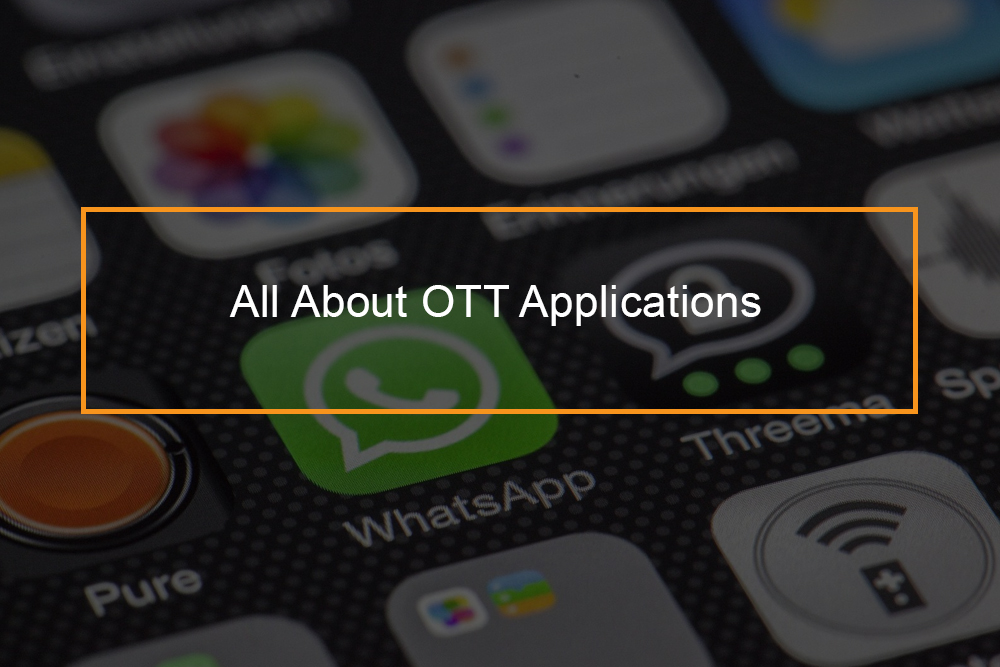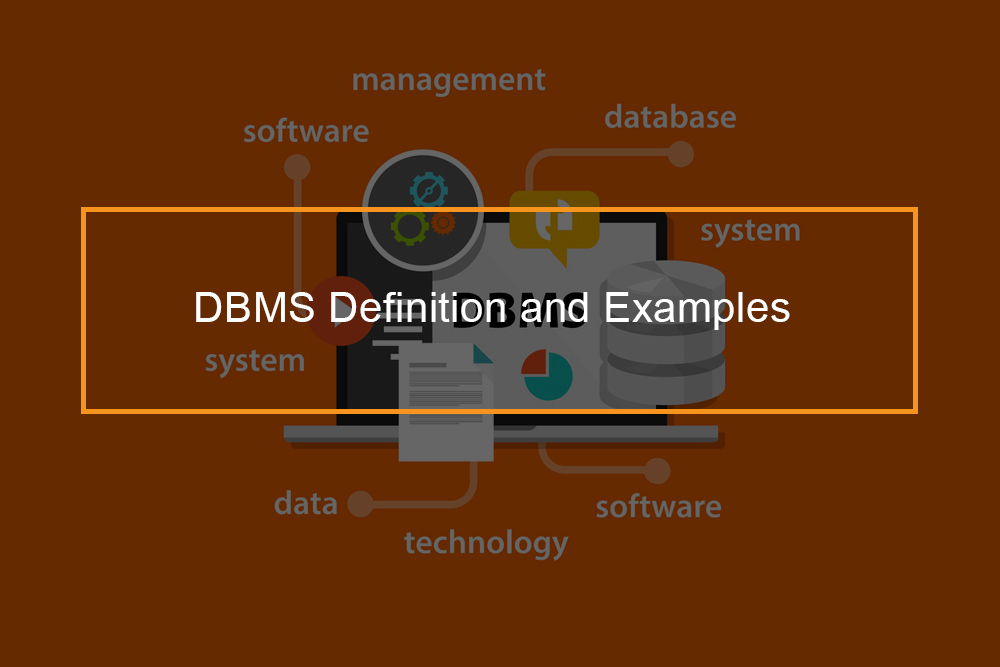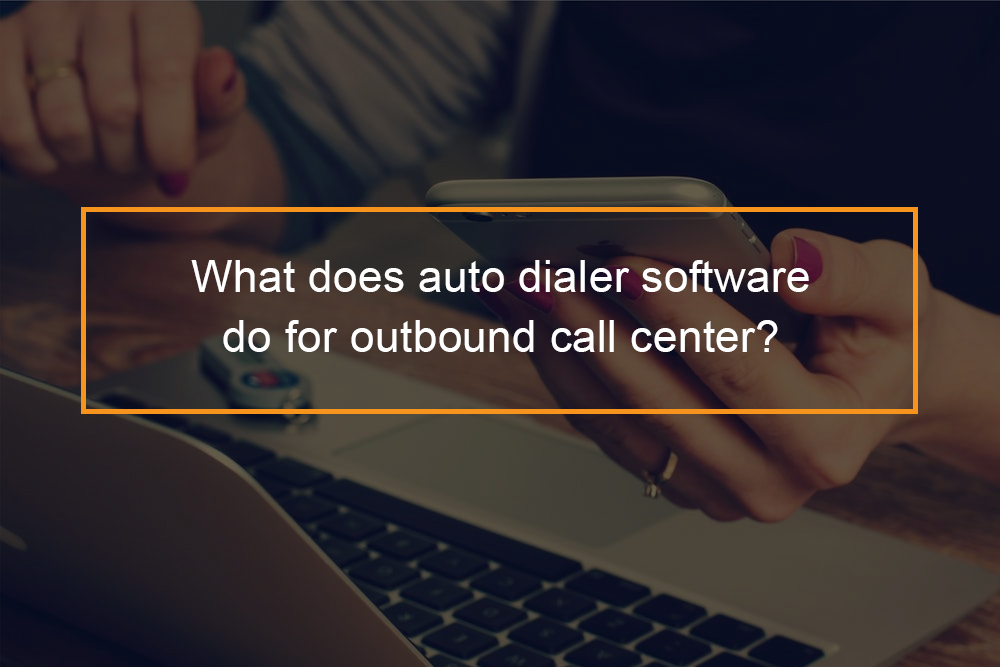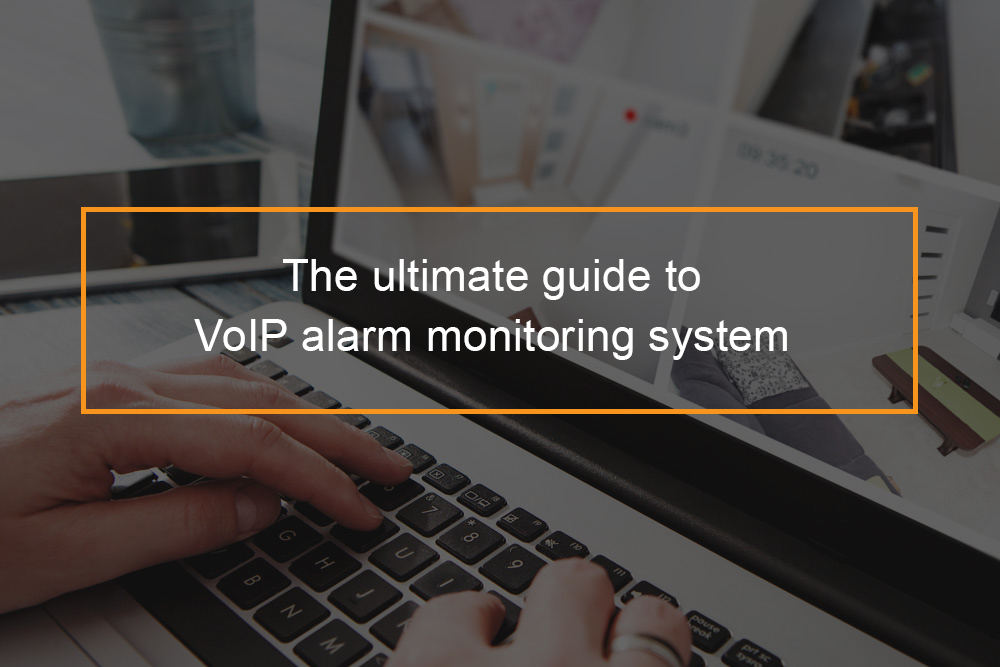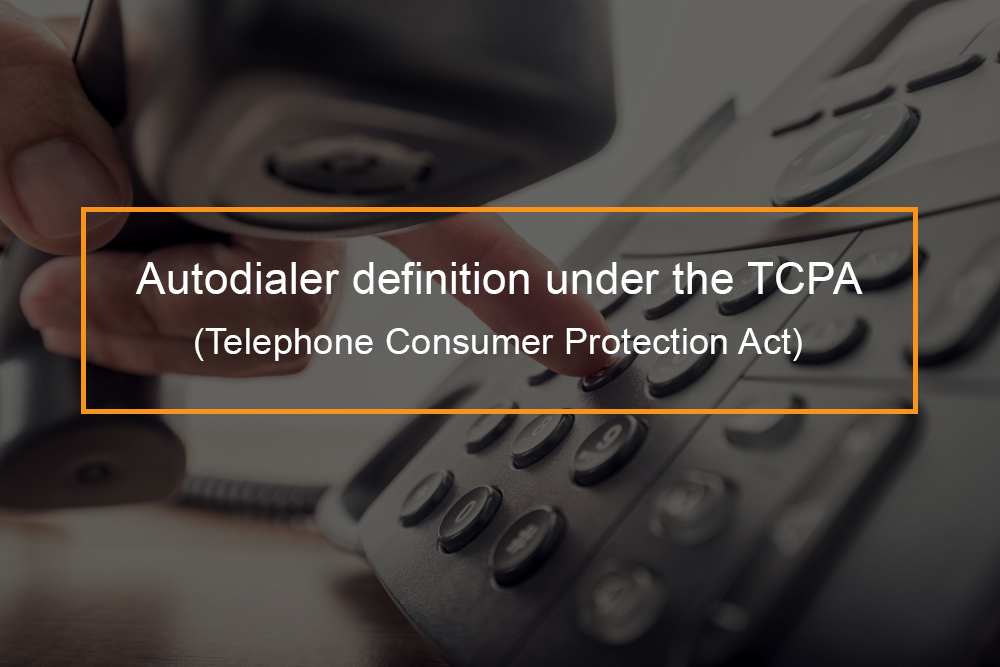
Autodialer under the TCPA is any device that has the capacity to store, produce, and call phone numbers utilizing a random or sequential generator. The Telephone Consumer Protection, TCPA, controls unsolicited telemarketing calls, faxes, and texts, including illegal robocalls that use auto dialers or prerecorded messages.
Courts across the US and the Federal Communication Commission (FCC), have taken a very expansive view regarding the definition of an autodialer. As a result of huge settlements and penalties being levied against telemarketers under the TCPA, it is recommended to broadly construe autodialer definition to avoid unwanted regulatory. For example, if you are using any call center software as part of your telemarketing operations, you might be using an autodialer within the Federal Communication Commission’s definition.
The adoption of more specific TCPA rules in 2013 increases the complexity of maintaining DNC compliance as well as TCPA compliance. Telemarketers thus need to know how to comply with the TCPA and maintain the records essential to invoke the FCC’s safe harbor. Nonetheless, it appears that there is now a trend to rein-in the expansive definition of an autodialer under the statutory definition.
What is an automatic telephone dialing system?
The evolving definition of autodialer system under TCPA
The current and future of what qualifies as an automatic telephone dialing system ATDS (autodialer) remains a hotly debated and evaluated issue for each company placing calls and texts or designing dialer technology together with the rules and regulations under TCPA. Last year the DC circuit split the FCC ATDS definition in ACA intl v. Federal Communication Commission. Since then, courts have diverged in approaches to interpreting the ATDS term. For example, a California court held TCPA autodialer requirements to only apply to systems with a number generator. Let’s look at court ruling in aca international concerning ATDS definitions.
Autodialer developments before the ninth circuit ruling
In rulings issued in 2015, 2012, 2008, and 2003, the FCC had implemented a broad interpretation of the statutory definition of an ATDS. One that covered predictive dialers and other dialing systems that are used in generating random or sequential numbers and dial them without human intervention. The second and the third circuits took a restrictive view of capacity in the statutory definition of ATDS under the TCPA, ruling the word capacity means the system must have the present ability to perform the tasks in the statute can function as an autodialer, and the future potential capability is insufficient. The ninth circuits adoption encompasses any equipment that automatically dials numbers from a stored list- inclusive of predictive dialers that are used in robocalls. The ninth circuit saw several developments, including attorney advertising, seeking comments from the public on the definition of auto dialers.
The Federal Communication Commission declaratory ruling on TCPA
The FCC issued a much-anticipated declaratory ruling and order on July 10, 2015, resolving twenty-one petitions regarding the Telephone Consumer Protection Act TCPA. With statutory fines of up to $1500 for each violation without any showing of real damage, the TCPA has become the pick of plaintiffs’ attorneys seeking class payments from any organization that sends text messages to interact with their consumers. However, if a company sends text messages concerning food and drug or health care, then it is exceptioned.
Notably, the FCC’s 2015 TCPA declaratory ruling and order was issued, chairman Pai, authored a highly critical dissent inclusive of a direct challenge to the interpretation of an autodialer. In chairman Pai’s view, the ruling improperly expanded the definition of an ATDS beyond the legislative mandated and required to have reigned back in.
Since the congress implemented the TCPA in 1991, however, the application of the statute to new technologies is frequently unclear and has resulted in disagreement among district courts. Whereas the Commission’s order might bring clarity to some aspects of the statute’s application, the FCCs interpretation of the statute’s reach will also possibly draw extra challenges to the FCC’s authority and is not likely to quell the tide of TCPA litigation.
The court order addresses a variety of topics. However, two are critically essential for companies deploying SMS to reach their customers and users or to aid users of their facilities to communicate with their friends by SMS. First, the Federal Communication Commission reaffirmed and expanded further its already expansive definition of what an automatic telephone dialing system constitutes under the statute. Under this definition, which may or might not be accepted by the courts, any computer with the ability to dial numbers, inclusive of modern smartphones, could be regarded as an autodialer.
Second, the Federal Communication Commission attempted to offer some clarity on whether a mobile application provider that allows users to send text messages to friends through the use of the app ‘places a call’ with the aim of liability under the act. This aspect of the FCC’s ruling should offer some protection to organizations whose customers send invitational text messages to their contacts or friends.
Definition of autodialer software
When it developed the TCPA, Congress defined the word automatic telephone dialing system as a tool that has the capacity (a) to store or produce phone numbers to be dialed, random or sequentially generated, and (b) capacity to dial stored numbers. The Federal Communication Commission July 10 attempts to bring clarity to three disputed aspects of this definition;
- If the equipment must have the present capacity to store or produce and dial numbers as provided by the statute.
- The conditions under which a predictive dialer is an automatic dialing system
- If internet-phone dialing qualifies as an ATDS.
Potential versus present capacity
Since the TCPA speaks in terms of system capacity, courts have diverged on the problem of if a system should be judged based on its present capacity-meaning the equipment’s capability at the period a call was made or the system’s potential capacity, meaning what the equipment could theoretically do if modified or altered.
Most courts have concluded that a system should be interpreted in terms of its present capacity since that is the only interpretation that would avoid bringing modern mobile phones under the statute. Currently, commentators and courts have observed that many modern technological devices, inclusive of smartphones, could produce or store numbers and dial such numbers without human intervention if outfitted with the requisite application. Therefore, they have made a distinction between a system’s present capacity, as presently designed, and its potential capacity.
In 2015 the court held the confusion over the term capacity as it relates to the ATDS definition was increased by the FCC insufficient explanation of the requisite features that the covered ATDS equipment must-have.
The Federal Communication Commission did not share such concerns in its order. It concluded that a system does not need to have the present ability to dial random or sequential numbers to qualify as an autodialer or ATDS. Instead, the commission concluded that a system qualifies as an autodialer if it has the potential ability to attain the required capacity, even though doing so would need, for instance, the addition of specific applications not presently present.
Accordingly, the fact that the system does not have the present capacity to generate or dial numbers as portrayed in the statute will not protect defendants under the Federal Commission ruling in case it could be programmed or otherwise modified to dial numbers generated or stored utilizing a random or sequential number generator.
What is the definition of predictive dialers under TCPA?
What is a predictive dialer?
In a 2003 declaratory ruling, the Federal Communication Commission concluded that equipment has the capability to store or produce numbers and call those numbers at random and in sequential order, from a database of numbers is termed as an ATDS under the statute. The database is from the National Do Not Call Registry, maintained by the US Federal Trade Commission FTC. It lists the telephone numbers of consumers who have requested that advertisers and marketers should not contact them.
In 2012 the FCC further stated that a predictive dialer comprises any device with the capacity to generate numbers and call them without human intervention whether the numbers called are randomly or sequentially generated or come from calling lists.
The use of this definition also divided courts, as almost all modern smartphones are capable of dialing numbers from a contact list. To characterize such smartphones as autodialers, even where they lack the ability to store or produce telephone numbers to be dialed utilizing a random or sequential generator appears to run directly contrary to the statutory definition.

